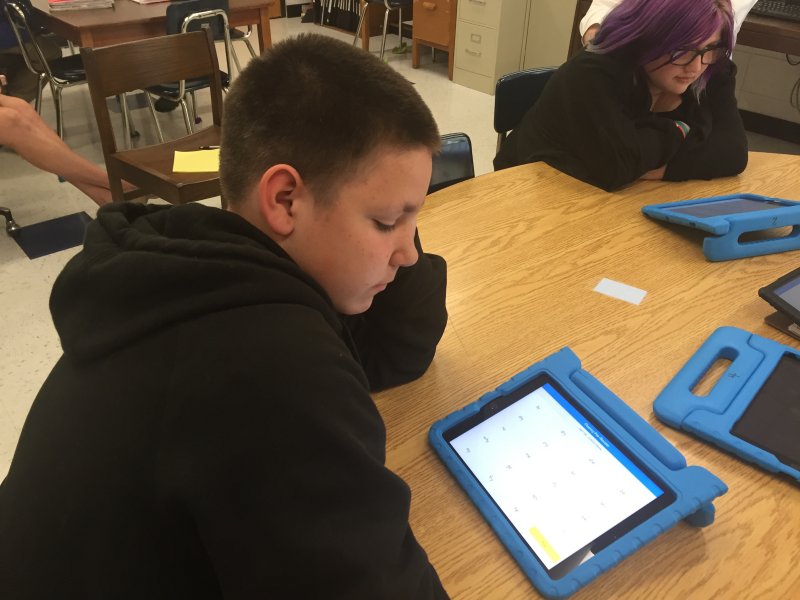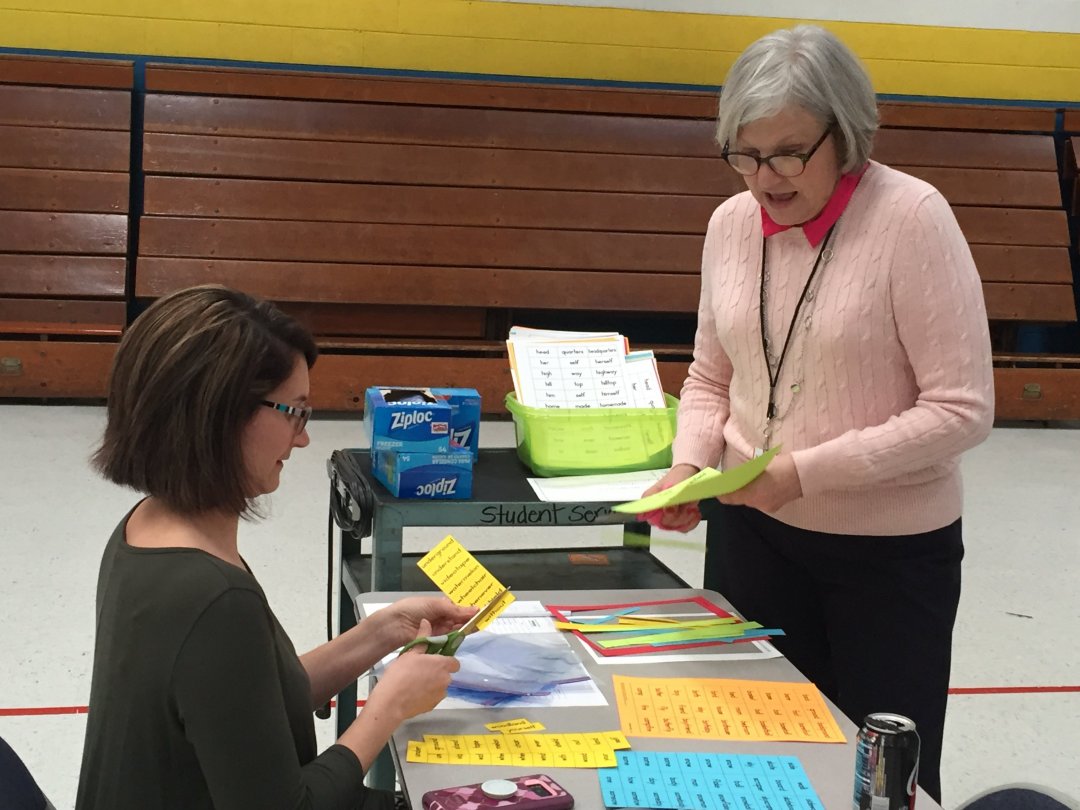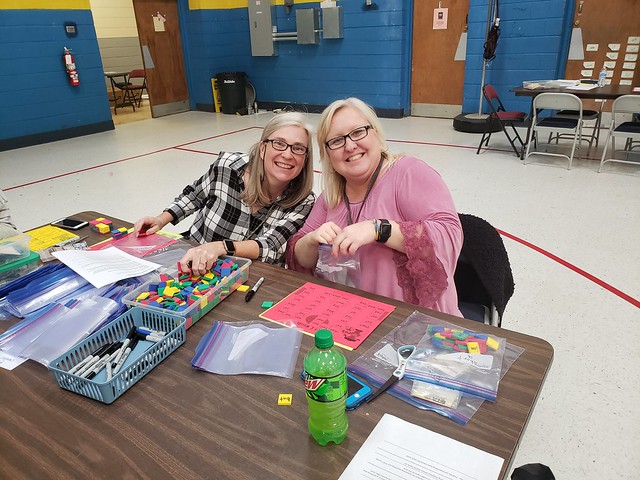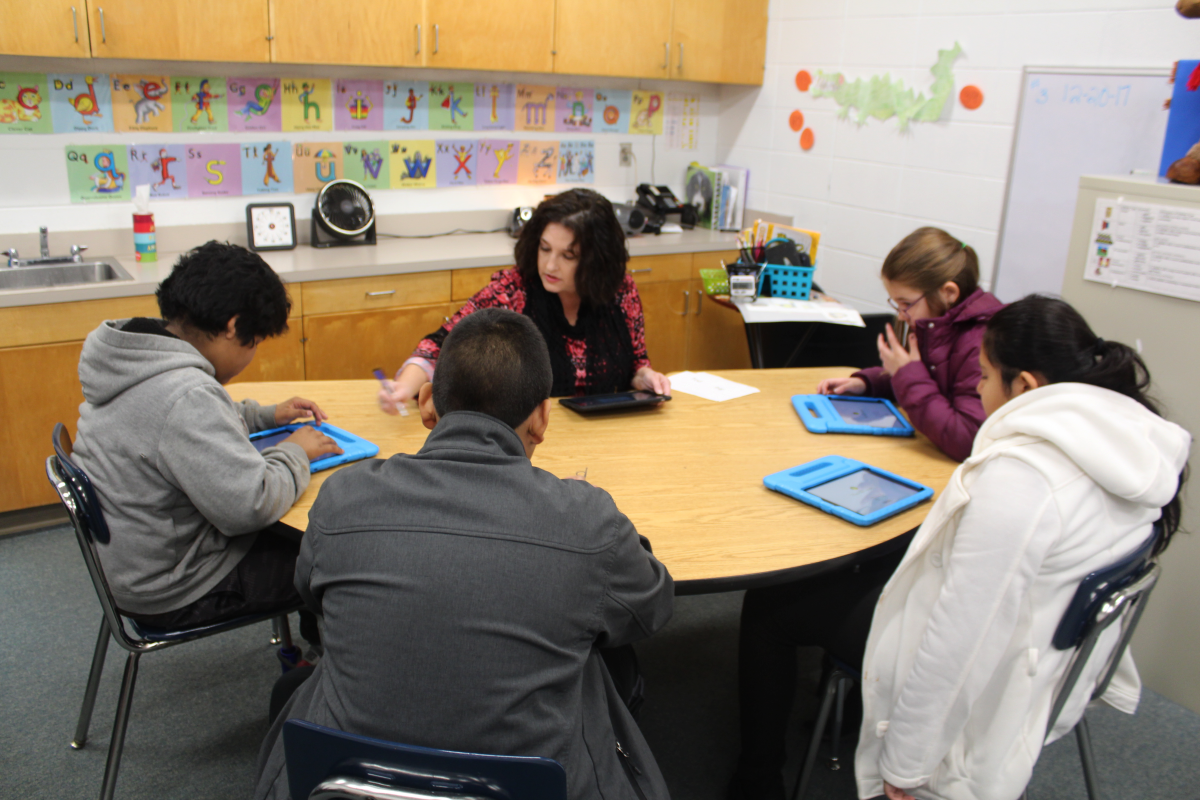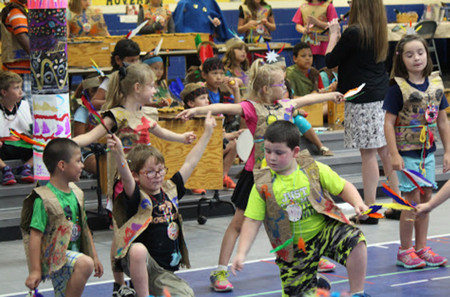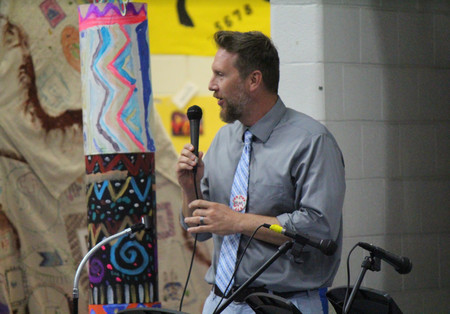In the Face of COVID, Hill Learning Center Invests in Making Reading Intervention More Accessible to Teachers and Students Across NC
By Jeanna Baxter White
When the pandemic struck in March 2020, and in-person learning came to a screeching halt, Hill Learning Center in Durham rose to the challenge and, in only three weeks, developed and released a version of its Hill Reading Achievement Program (HillRAP) that could be delivered remotely as long as the teacher and students had iPads and an internet connection. By summer, the HillRAP team had transformed its training model, which had required at least two days of in-person training, into a fully virtual professional learning experience. Previously, these efforts would have required many months, if not years, of planning, budgeting, testing, and refinement. But the need was urgent and real, and the experience inspired Hill to think and act more boldly than ever before.
Students at KIPP Durham achieve reading mastery through HillRAP, a small group reading intervention for students with persistent reading difficulties, including those with diagnosed and undiagnosed learning differences.
“There is little doubt or dispute that the inability to read can have devastating effects on life outcomes for students, or that as a nation, we are not fulfilling our moral and societal obligation to teach all students to read. Unfortunately, these realities have all been exacerbated by the pandemic,” said Beth Anderson, executive director of Hill Learning Center. “To accelerate the reading development of students who have fallen even further behind due to COVID, quality, science-based core reading instruction must be supplemented by targeted, small-group intervention that can accurately identify and address foundational gaps.”
HillRAP leverages technology and quality professional development to deliver teacher-led, individualized, small-group instruction to students with persistent reading difficulties, including those with diagnosed and undiagnosed learning differences. Decades of research have shown that explicit phonics instruction benefits all early readers, particularly those who struggle to read. Hill’s instruction philosophy is based on the Orton-Gillingham approach, which focuses on teaching students the structure of language while incorporating precision teaching techniques including charting and graphing student progress. Using Hill assessments, an individualized instructional plan is created for each student. Progress is continually monitored as students work toward mastery of skills. (Watch this video to learn more.)
HillRAP Delivery Model Evolves to Increase Accessibility
Last year, even in the face of the pandemic, 555 educators were using HillRAP to serve nearly 5,600 students across North Carolina and beyond; 375 of those teachers and 3,500 of those students were in NC public and private schools outside of Hill School. However, many previous HillRAP users were unable to implement due to pandemic barriers related to technology, training, and time. Others wanted to adopt the program but simply didn’t have the iPads needed to do so. “We saw the need for HillRAP increasing and knew we had a tool and program that could seamlessly support both remote and in-person intervention, but we also knew we had to more radically evolve our delivery model to make it more accessible to any teacher serving any student, anywhere,” explained Anderson.
Thus, Hill set an ambitious goal to dramatically expand HillRAP’s reach to serve 26,000 students and 2,100 educators annually by 2024-25. To do so, they knew they would have to make significant additional investments in software development and improvements to online professional learning, data and analytics, and strategy, systems, and operations. First and foremost, as schools and districts everywhere expanded their investments in technology, and especially Chromebooks, Hill needed to migrate the HillRAP app from Apple iOS to a web-based platform that would be easy for teachers and students to use on any device.
The Mebane Foundation Supports Expansion
Such an ambitious undertaking carries a hefty price tag, so Anderson turned to supporters like the Mebane Foundation for financial assistance. Recognizing the value of the endeavor, the Foundation, a staunch supporter of Hill Learning Center for almost 20 years, made a $25,000 donation to help fund the development, joining other philanthropic funders who have collectively committed nearly $500,000 to this initiative.
“In my opinion, Hill Learning Center has been the strongest organizational grantee we’ve supported since the Foundation began in 2003. However, while we have always recognized the extreme value Hill has to offer struggling readers and their families, the lack of access for those who couldn’t afford it has also been a sticking point for us,” said Mebane Foundation President Larry Colbourne. “With this investment, we are thrilled to support Hill’s efforts to expand the accessibility of HillRAP for both students and teachers. I believe exciting times are ahead for not just the organization, but for a much larger population of young struggling readers.”

Using her iPad, the HillRAP instructor is able to monitor each student’s progress.
The Time is Now
Hill and the Mebane Foundation have been partnering to help NC children succeed in reading since 2003 when the Foundation made a significant commitment to simultaneously launch two Hill programs in the Davie County school system and at 11 private preschools/daycares around the county. Over the years, the Foundation has made numerous contributions, including a transformative investment in 2015 toward the early development and deployment of the Hill Learning System (HLS), which has evolved into the HillRAP app. These investments, and those of many other donors, districts, and schools, have supported the expansion of HillRAP across NC and beyond – today, HillRAP is in use in 42 NC counties, 15 states, and 5 countries.
Nearly two decades into this work, Anderson sees the current landscape in NC as especially ripe for strategic growth with a web-based HillRAP. She reflects, “First of all, in the face of the pandemic, and despite all the challenges they were facing, we saw administrators and teachers with whom we already had a relationship turning to HillRAP as they developed plans for supporting students after the devastating disruptions of the 2020-21 school year.”
The most significant of these was KIPP North Carolina Public Schools, which had new leadership and was overhauling their approach to developing successful readers. According to Executive Director Tim Saintsing, “We are making a major investment in ensuring that every KIPP NC teacher is a reading teacher informed by the science of reading. When ESSER funds became available, we decided to bolster this effort by making a significant investment to hire and train a dedicated HillRAP interventionist in all 8 of our schools to expand consistent, quality intervention as much as possible to accelerate closing foundational reading gaps that had only been exacerbated by COVID.”
Web-Based HillRAP App Allows for Flexible Learning
Ashe County Literacy Specialist Lindsey Hagel has been happily using HillRAP since being certified in 2016, but it’s taken on even more importance since the pandemic. “I am thankful for HillRAP and the ability to use this program now more than ever. Teachers have done a fantastic job in navigating instruction throughout the pandemic, and being able to use this intensive intervention makes me feel like I am doing my part. I know I am giving my students the best instruction I can to help make up for COVID disruptions in their education. At a time when teachers are feeling especially challenged, overwhelmed, and weary, providing them with the training and tools they need to feel successful is more important than ever.”
KIPP was fortunate to already have iPads at each school that they could use for HillRAP, as were HillRAP teachers in Ashe and Edgecombe counties, thanks to the generosity of donors. Yet they struggle to use HillRAP with students who don’t have iPads at home, something KIPP is wrestling with right now as they shifted to remote learning for a few weeks in the face of the COVID omicron surge.
Hill Learning Center is developing a web-based version of HIllRAP that will be accessible on any internet-enabled device, dramatically expanding its availability to teachers and students.
Hagel noted, “The web-based app is going to be a very valuable tool if our school system has to go to remote learning again. We will be able to continue with our routine and not lose as much instructional time.”
Longtime Edgecombe County Public Schools HillRAP teacher and mentor Lisa Oakley expressed a similar sentiment, “This investment affords the teachers and students an opportunity to use Chromebooks that are issued to each scholar countywide. We are no longer restricted by the limited number of iPads within each school! Having a web-based version also allows us to move more seamlessly into remote learning when needed.”
Carteret County Public Schools reading specialist Jodi Allen has five iPads that were issued by her school district for the implementation of HillRAP. She pointed out that when these iPads become outdated, there is no guarantee that they will be replaced. “The web-based version of the program will allow students to access the lesson on their school-issued device whether it is an iPad or a Chromebook. It will also save time and keep students safe because multiple students are not sharing the same device, which limits the spread of germs and eliminates the time a teacher needs to sanitize devices between lessons.”
More critically, many NC school districts do not have iPads or support Apple products. Anderson explained that school systems in places like Randolph County and Davidson County have continued to train teachers in HillRAP, using the original paper-based intervention, but are eager to migrate to the web-based app and train even more teachers as soon as possible. Once the web-based app is available, they will be able to make the switch, offering their teachers greater efficiency with the most up-to-date content, data, and resources at their fingertips, while administrators will have greater insight into implementation fidelity and growth of students and the impact of their investment.
HillRAP Partners With Districts to Ensure Reading Success
Beyond those teachers, schools, and districts already using HillRAP, Anderson sees new opportunities for a more accessible HillRAP to play a critical role in the statewide movement towards aligning instruction and teacher knowledge with the science of reading. “The NC legislature and NC DPI are to be lauded for their efforts in amending Read to Achieve last year and seeking to train teachers and establish the foundation for strong core reading instruction that should meet the needs of most elementary students. However, these efforts will not address the instructional needs of students with persistent reading difficulties, including those in older grades with foundational gaps. For those students, more intensive, targeted intervention is required to close deficits, learn to mastery, and develop the reading confidence and success that can be life-changing.”
KIPP’s Saintsing refers to their HillRAP partnership with Hill as “AWESOME” and “IMPORTANT.” He hopes that when the ESSER funding expires in three years, they will have closed many gaps for individual students, reduced the need for intensive intervention across their schools, and built the capacity for long-term sustainability that the web-based app and investments in teacher training and support should help facilitate. “While it’s too early to evaluate success, the teachers and students are engaged and learning and the support from Hill has been phenomenal.”
Anderson sums up what motivates Hill to keep seeking to grow its place in the NC educational ecosystem: “As the state invests millions of dollars in improving teacher knowledge and core reading instruction, we must continue to invest, innovate, and expand HillRAP to help ensure the most marginalized, struggling students in North Carolina schools – large and small; rural and urban; virtual and in-person; district, charter, private, and home – do not fail to reach their potential because they cannot read. Thanks to the investments of the Mebane Foundation and many others, Hill is moving aggressively to release the web-based HillRAP app with enhanced training, resources, data, and supports in July 2022, moving us one giant step closer to our goal of helping thousands more teachers and students who are struggling to experience reading success.”










